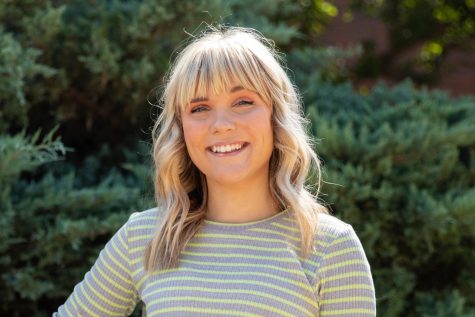College faculty not included in phase 2 of vaccine distribution plan
Kansas is preparing to enter phase 2 of the COVID-19 vaccination distribution plan and while K-12 educators will be able to receive the vaccine, higher education faculty will be left out of the mix.
The Kansas Department of Health and Environment has not announced when the state will be prepared to begin phase 2, but they are expected to know by the end of this week.
Phase 2 provides vaccines to anyone working in a congregate setting— which includes homeless shelters, childcare institutions, correctional facilities, and adult care homes, among others.
Interim Provost Shirley Lefever said that the administration has been working to prioritize those who have a greater risk of contracting the virus from working in a higher education setting.
“We understand the task of setting priorities for the vaccine is a difficult one,” Lefever said in an email to The Sunflower. “As such, we are working closely with Camille Childers, our representative on [the Kansas COVID-19 Vaccine Advisory Committee] to help prioritize those individuals in our campus community who work or supervise students in settings that may put them at greater risk.
“While we wait for more information regarding the timing of the vaccine, we will stay patient and continue to provide information to assist the task force in their decision making.”
Student Health Director Childers said she understands the importance of setting priorities when rolling out the COVID vaccine.
“You need to look at the thought process behind those priorities,” Childers said. “When you look at the KDHE prioritization plan for the vaccine, what you’re looking at is immunizing those who are at the greatest risk initially.”
Childers said that because college is more “optional” than a K-12 environment, she understands that immunizing those individuals is more important than higher education workers.
“That environment has to continue to function, it’s not really an option to not go to school,” Childers said.
Childers said that advocacy is a “continual process.”
“When we talk about advocating the piece about COVID-19 you know. . . . it’s a fluid process and even the prioritization schedule is going to be open to change based on several factors— the number of people getting sick, the populations being affected [and] the availability of the vaccine,” Childers said. “If the vaccine becomes more available . . . maybe we can move it up faster.
“There’s a lot of variables at play and we can only work with what we have at the moment before we can decide to go forward.”.
Childers said that while most faculty wait to qualify for vaccines, it’s important to encourage those who are able to get the vaccine.
“I think it’s important in a college environment to understand that we may have faculty and staff or even students that fall into those higher risk categories and those individuals should— if they choose to vaccinate— should choose to take advantage of that when the prioritization schedule opens up for that group,” Childers said.
But in the meantime, Childers said that the vaccine will not cure the virus instantly. She said that social distancing, mask wearing, and all the other guidelines are just as important even with a part of the population getting vaccinated.
“It’s all part of the toolkit we have to fight this virus,” Childers said.

Lindsay Smith is the former editor-in-chief and newsletter editor for The Sunflower. Smith was a journalism major at Wichita State with a minor in creative...









